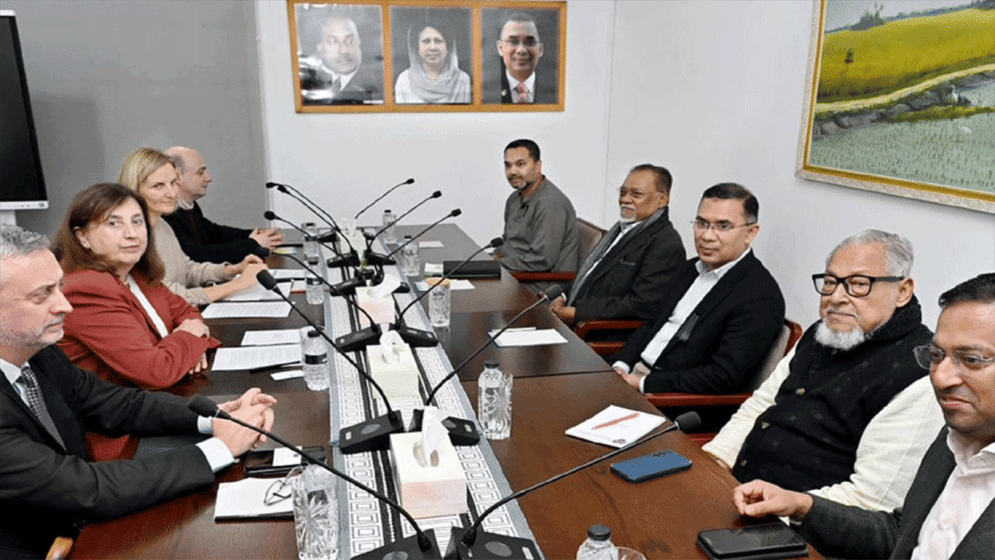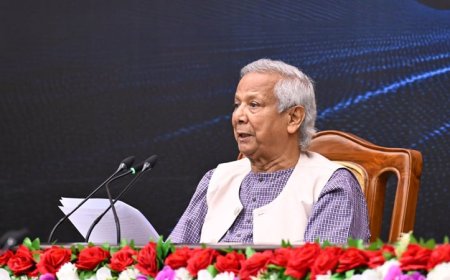Ziaur Rahman: A Timeless Influence on Bangladesh
Hailed as the Architect of National Identity: Freedom Fighter, Independence Proclaimer, Liberation War Organiser

Martyred President Ziaur Rahman, the founder of the Bangladesh Nationalist Party (BNP), remains a figure of enduring significance in Bangladesh’s political and national identity. His vision centered on building a modern, dignified, and prosperous nation—free from poverty, illiteracy, and discrimination.
A valiant freedom fighter and Sector Commander during the Liberation War, Ziaur Rahman holds a lasting place in the country’s history. He is remembered as the proclaimer of Bangladesh’s independence and a central organiser of the war effort, earning recognition as a key architect of the nation’s identity.
Zia played a pivotal role in shaping a self-reliant and forward-looking Bangladesh. As commander of the “Z Force,” the first military brigade of the Liberation Army, he also contributed to regional diplomacy by pioneering the idea of SAARC, promoting South Asian cooperation.
A firm believer in multi-party democracy, Ziaur Rahman introduced the concept of “Bangladeshi nationalism” to unify a diverse population under a territorial identity that transcended linguistic, ethnic, or religious divisions. His emphasis on pluralism embraced all citizens, regardless of gender, ethnicity, or faith.
Zia’s political legacy is defined by pragmatism, integrity, and visionary leadership. He introduced a 19-point programme that laid a strategic roadmap for national development—prioritising socio-economic upliftment, women’s and youth empowerment, and inclusive governance rooted in justice and national unity.
Even during his service in the Pakistan military, Ziaur Rahman dreamed of an independent Bangladesh—demonstrated by his active role in the battlefield and proclamation of independence. He was not just an idealist but a leader of action, deeply connected to the people. He traveled across the countryside, engaging directly with citizens and earning their trust through honesty and humility.
Zia assumed national leadership during a time of chaos and uncertainty. He played a stabilising role, guiding Bangladesh toward democratic restoration. The formation of the BNP in 1978 was a crucial step in reviving political normalcy and multiparty participation.
His presidency brought notable advancements across economic, political, and diplomatic sectors. His reforms focused on decentralisation, private sector growth, agricultural innovation, and population control. On the global stage, he pursued a balanced foreign policy, establishing respectful ties with India and other South Asian countries while promoting self-reliance and mutual cooperation.
Zia’s 19-point charter continues to resonate. It presents a comprehensive development model still cited in contemporary politics—especially as Bangladesh navigates a renewed era of reform under the interim government led by Prof Muhammad Yunus. The BNP, drawing from Zia’s principles and Khaleda Zia’s Vision 2030, has championed this legacy through its 31-point reform proposals in recent years.
Over four decades since his assassination in Chittagong on May 30, 1981, Ziaur Rahman remains a source of inspiration. His commitment to democracy, accountability, and national dignity offers a timeless guide for political leaders striving to serve with integrity. He rests at Sher-e-Bangla Nagar, but his ideas continue to shape the aspirations of the Bangladeshi people.
What's Your Reaction?





















































































